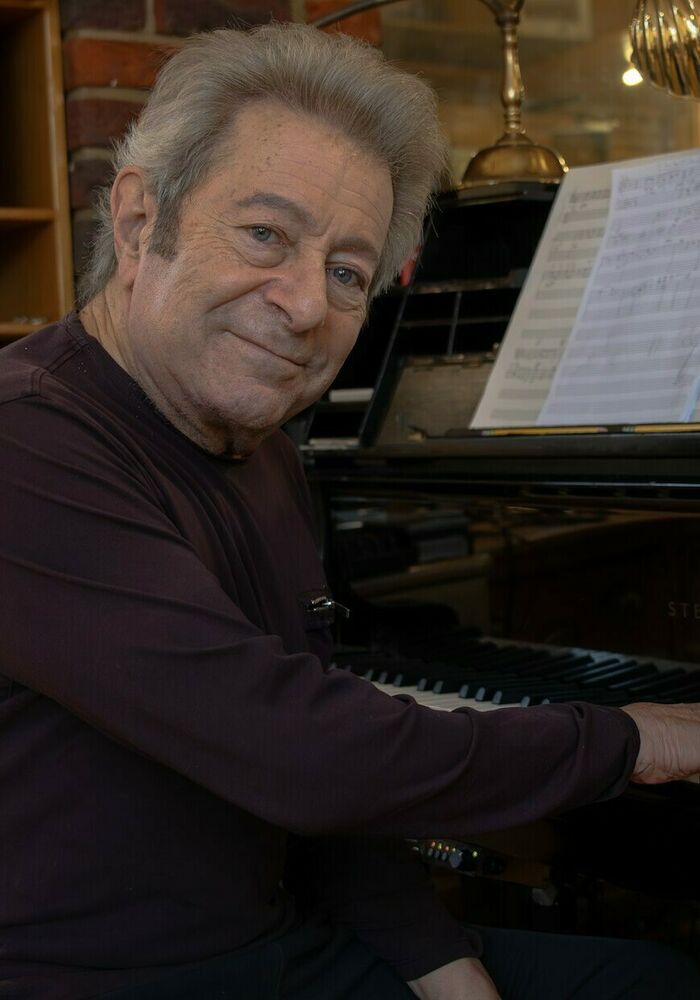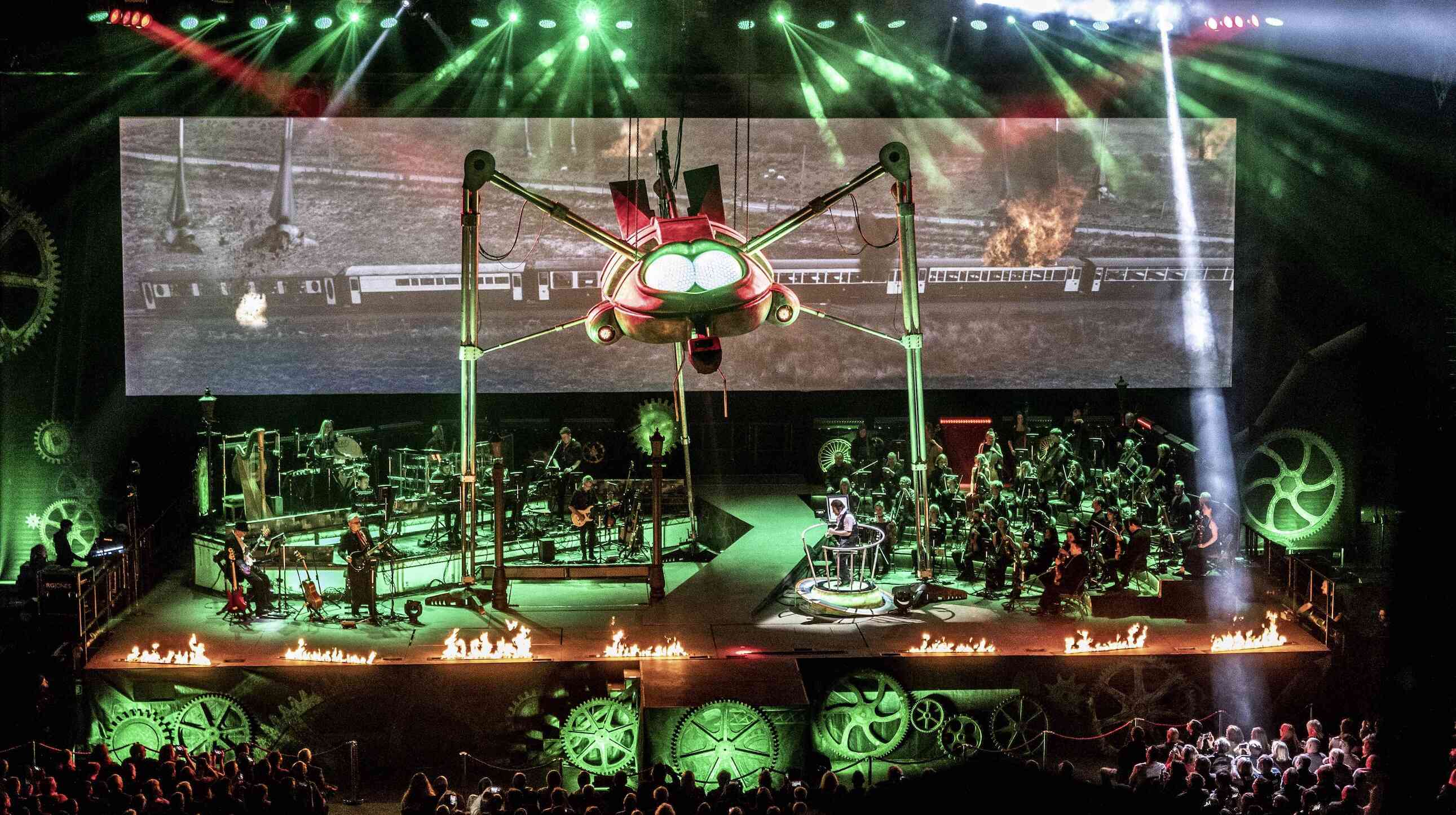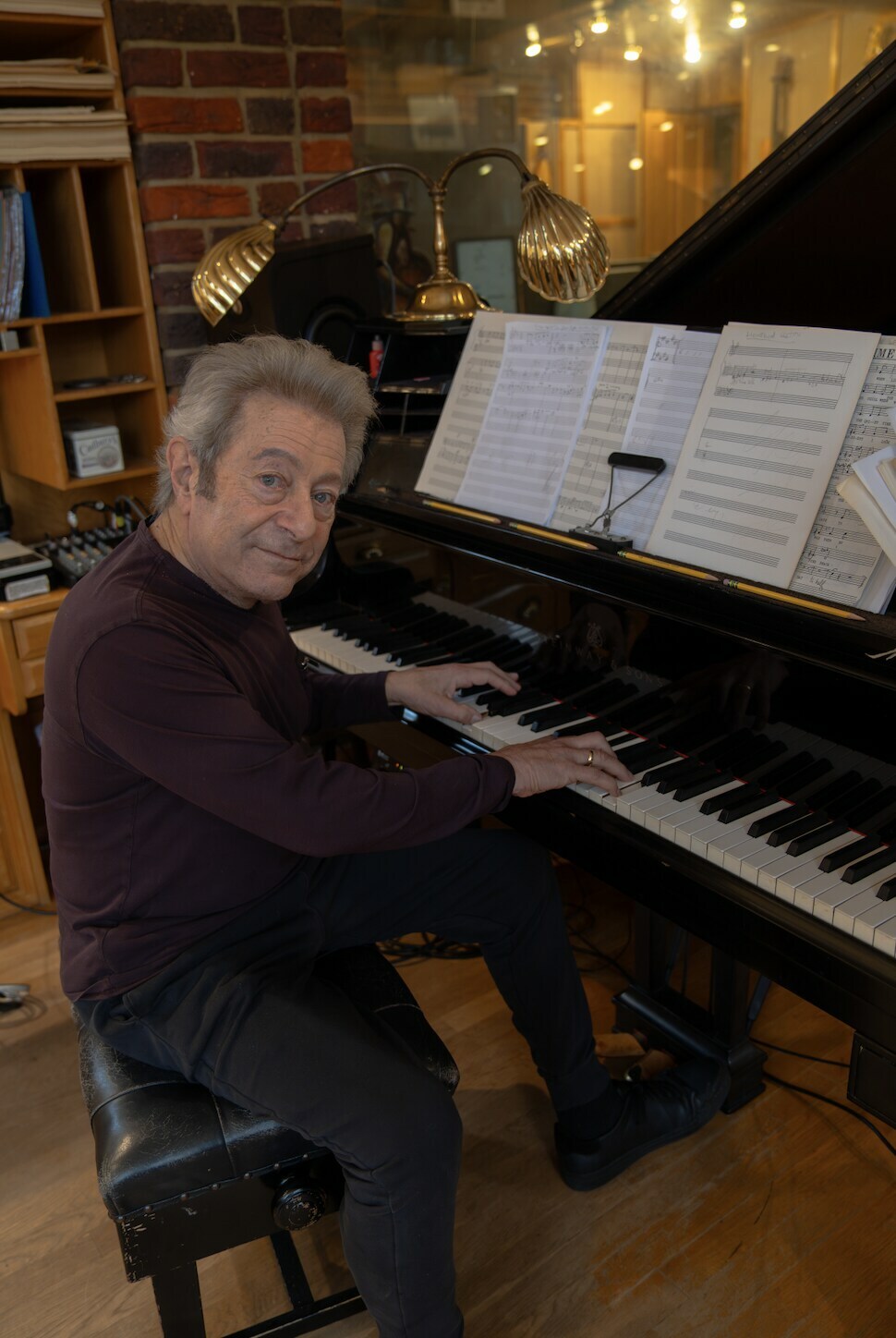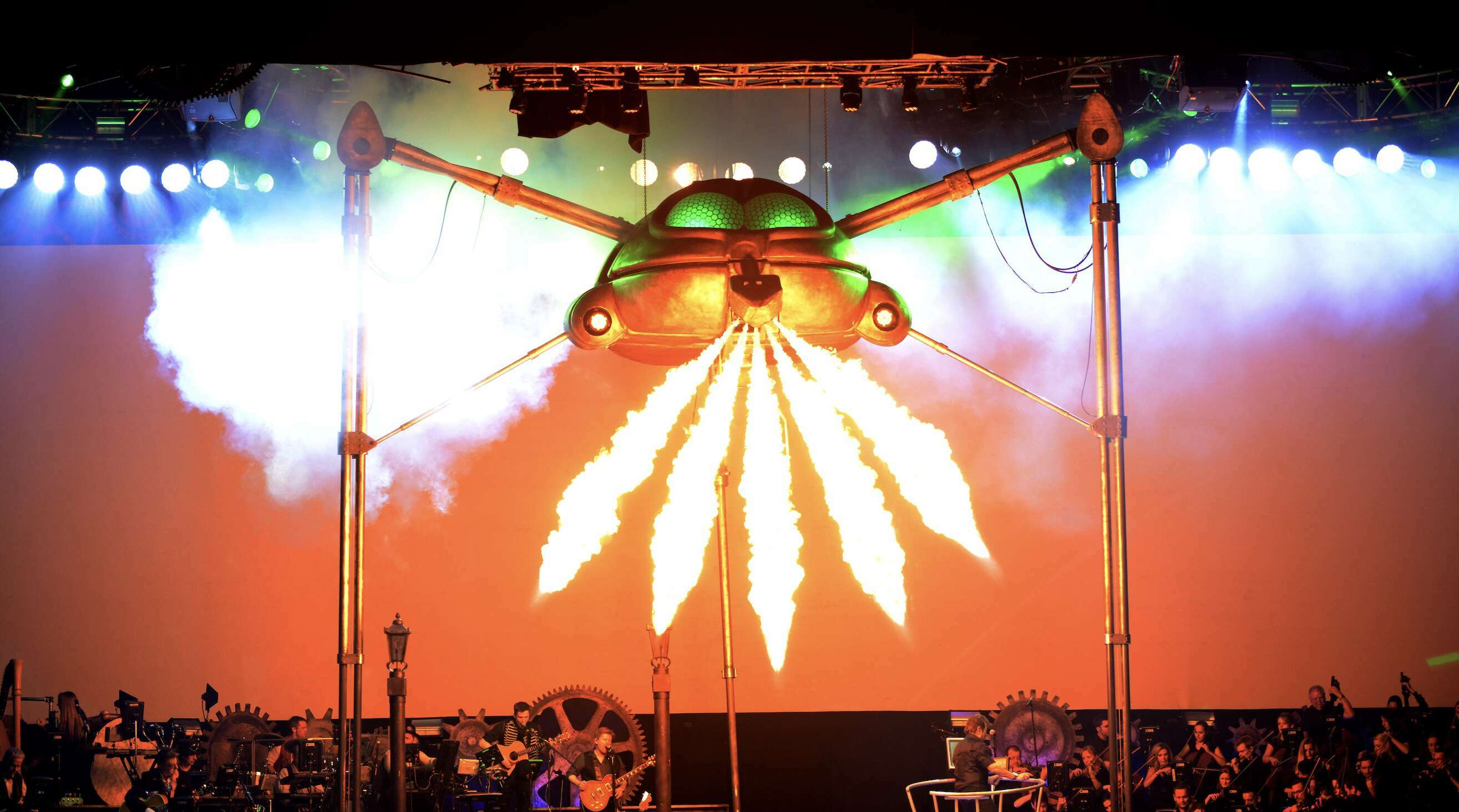Wayne’s incarnation of The War of the Worlds began to take on new life when it made its first foray into the realm of theatre. When it made its stage debut in 2006, so began an ongoing period of evolution that continues to this day, as its score and the technology that shapes it continues to develop and grow ever more sophisticated.
“I think where it has really evolved is since we started touring arenas,” he states. “I learned a lot from conducting to live audiences, and translating a double album to a live medium is a different thing. I never want to lose the heart of my score and the story, but there are a number of avenues we have opened up. I always promised myself that I would never do the same tour twice. That’s given it a life, as there are some people who have come back to see us and as we’ve built more and more shows so every one is different. And technology has changed so dramatically that an idea one would have dismissed all those years ago is now pretty commonplace, and you use it in a way that gets the audience excited.”
From an AV perspective, technological advancements have enabled Wayne to expand the scope of the production.
“I’ll give you an example of something we started with and how it’s grown,” he elaborates. “And that’s our Martian fighting machine. It’s been with us from the start, is about 35 feet tall, weighs about three tons, and about half an hour into the story it descends having been hidden from the audience, and it lands on stage and fires its main weapon. It started off being laser lights, but now it’s real flames. It fires about 12 feet over the audience, and as the conductor I’m very aware every time it fires [laughs]. It’s an amazing bit of engineering.
“And we have gone from straight animation and imagery to more 3D effects. We now have multiple screens that we couldn’t have had many years ago. Just yesterday we saw a demonstration of a new LED screen that we are going to be using where the clarity is absolutely stunning.”
And what of the audio aspect?
“It was always an important ingredient to immerse – that very popular word now – our audiences in the arenas, and we did that with surround sound,” he notes. “Our sound is placed and mixed for different reasons, but the quality of the sounds and the systems have evolved, and I’m going to be seeing a system next week that will demonstrate that sound can travel from front to back without missing out the middle of the audience in any way. That’s something we’ll be looking to bring to The Spirit of Man tour.”
Launching in March 2025, The Spirit of Man marks the latest incarnation of Wayne’s musical vision for the show. Featuring new music, Wayne explains how it seeks to address contemporary issues within the original story’s framework.
“Our focus is, without trying to be a lesson in politics and history, that we are living in a dangerous world,” he says. “It’s self-evident. And there is duet between a parson and his wife who take the opposite sides of life, and it’s a duet called The Spirit of Man. The parson - the person you think you’d go to for spiritual comfort in times of need - is the first person to go totally bonkers. He thinks the Martians are devils and only he can meet them and face them, but he has no hope for mankind. Whereas his wife believes there is something to live for, something to die for. It’s the thematic part of what they are saying, that is what I wanted to name the show around. It’s the heart of this story.”
To witness Wayne’s undimmed enthusiasm for The War of the Worlds first-hand is genuinely inspiring. Though his demeanour is gentle and unassuming, there is still a fire and ambition that radiates when he discusses The Spirit of Man and his plans to continue tweaking and expanding upon his work. At 80 years old, he exhibits no signs whatsoever of stepping back from proceedings. The key, he tells us, is to continue evolving without losing sight of what made him fall for the source material in the first place.”
“I’m a fiddler,” he smiles. “I’m never happy. I always look back and think I could do things better. For the new show I’ve modernised some of the grooves; the sound quality we review every tour. I added a new song in 2014 and on our last tour in 2022 it became the name of the tour: Life Begins Again. It was appropriate because we’d just come out of Covid and it was like we were going to start again. This tour is n not about trying to educate or take a view, but it has an emotional content that is appropriate for the times.
“I fell in love with a dark Victorian tale set in England. And to paraphrase our journalist who starts The War of the Worlds with “no one could’ve believed”… that couldn’t be more true about everything I’ve ever done!”
JEFF WAYNE PHOTOS: Olivia Brytz
The War of The Worlds ’The Spirit of Man Tour 2025’ tickets on sale now:
https://myticket.co.uk/artists/jeff-wayne-s-the-war-of-the-worlds






